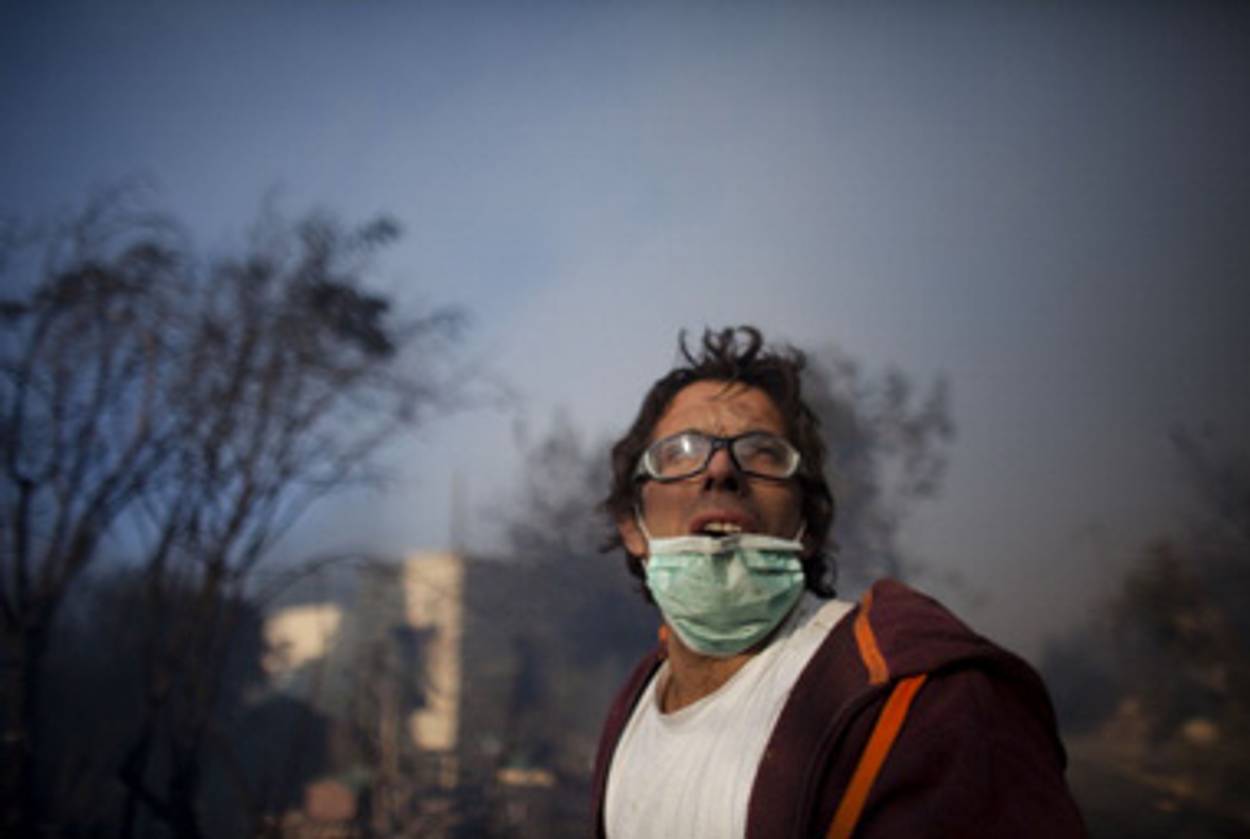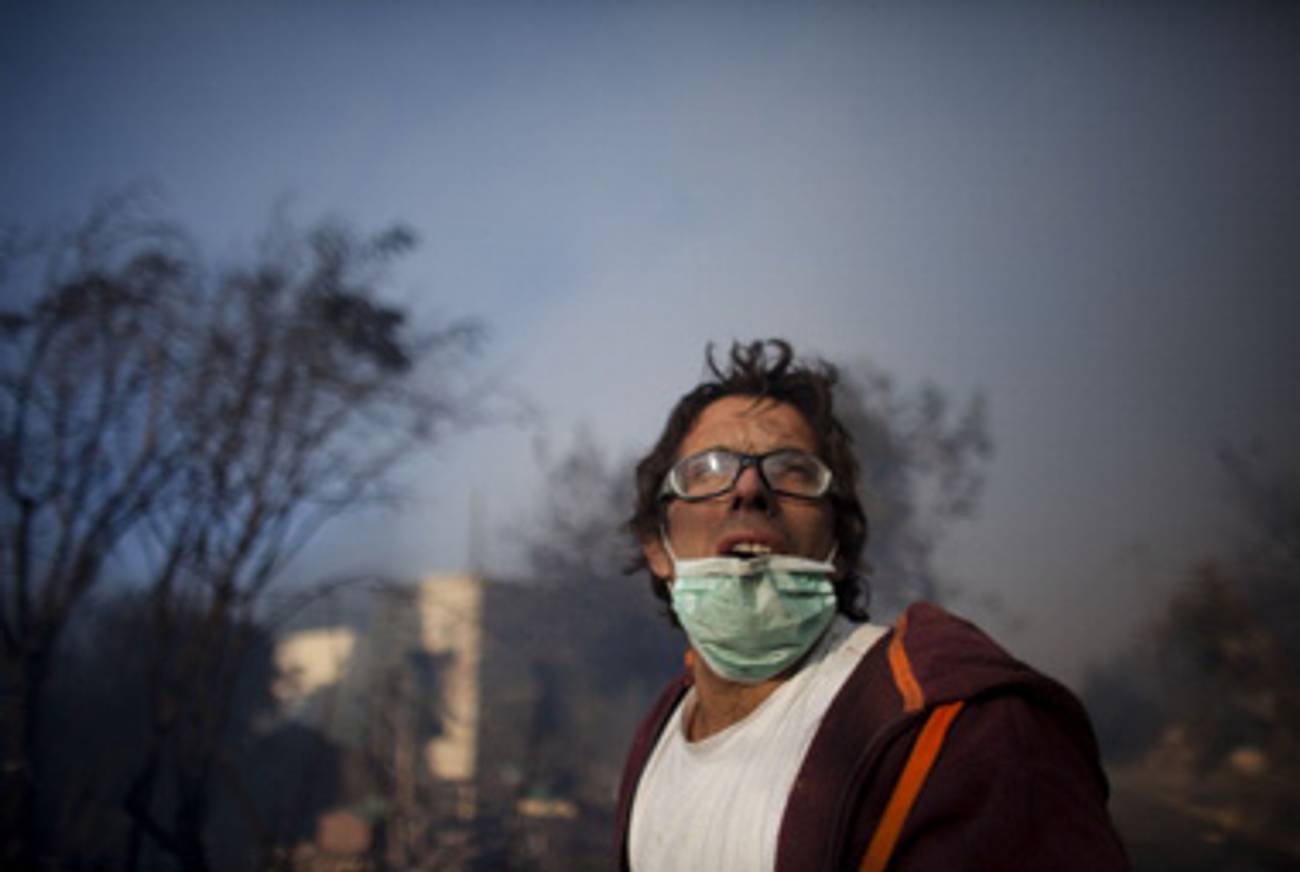Things Fall Apart
Israel’s leaders have abandoned the details of governance, as last week’s catastrophic wildfire tragically showed




In the summer of 1995, a major wildfire consumed nearly 5,000 acres of forest near Jerusalem, forcing scores of people to evacuate their homes and causing much damage to property. In its aftermath, an investigatory committee was formed, headed by a former Israel Defense Forces general. The committee’s report painted a bleak picture. The equipment used to fight fires was antiquated, it said, and no contingency plans existed to rapidly handle real crises. “The [firefighting] infrastructure isn’t ready to address large-scale fires,” the report concluded before making a host of practical recommendations, none of which were implemented. A second investigatory committee was then formed, which found that Israel has one fire fighter for every 6,000 residents, far below the Western standard of a fire fighter for every 1,000 residents, and submitted a scathing report to the man who was then the prime minister, Benjamin Netanyahu. Nothing was done.
In the 15 years that separated that fire from the one that devoured more than 12,000 acres of Israel’s Carmel region last week, the firefighting crisis in Israel was repeatedly discussed in the Knesset. The Israeli parliament’s proceedings from May 13, 2003, for example, reads, “[T]he picture painted by Shimon Romach, the chief fire commissioner, shows a vital service on the brink of collapse.” On July 11, 2006, Romach testified once again before the Knesset, and he said then that in case of a major disaster, the firefighting infrastructure—lacking a central chain of command and sorely needed supplies—would collapse on the spot. Yoav Gadassi, the head of the firefighters’ union, testified as well. Israel’s firefighting service, he said, was “an organization that survives by depending on miracles.”
The operatic-scale negligence of this quintessentially vital service carried on. In 2007, a state comptroller’s report described the firefighting infrastructure in similarly harsh terms. And in July of this year, the government discussed the firefighting condition once again and tasked the Minister of the Interior, Eli Yishai of the Shas party, to draft a bill for firefighting reform within one month. The draft was prepared, and it has been languishing in the lower rungs of the government’s agenda ever since. A report by the state comptroller—the publication of which was rushed due to the Carmel fire—took the same urgent tone. The firefighting infrastructure in Israel, wrote the Comptroller Micha Lindenstrauss in a report released Wednesday, is “on the verge of collapse in case of emergency, which might lead to loss of life and property and undermine the safety of the civilian population.” Local authorities, too, have partaken in this particular binge of criminal carelessness: Four months ago, Haifa’s city comptroller submitted a highly critical report, warning about everything from insufficient water reservoirs to fight fires to inadequate safety regulations in schools and kindergartens and recommending a series of urgent steps. None were taken.
I mention these intricate details because details are what governing is all about. More than empty political maneuvers, or bombastic statements, or ideological grandstanding, public servants are elected to see to it that a thousand small, unglamorous but infinitely important details are properly addressed.
Still smarting from the humiliation of having to call Cyprus, Greece, and Bulgaria to the rescue—carrying firefighting supplies and hardware Israel lacked—Israelis are mad as hell and in search of someone to blame for this spectacular collapse. But no one person deserves the blame; the fault is systemic. In the wake of the fire, Israeli media were quick to point out at least half a dozen more disasters in waiting. Last month, for example, three men were killed as a result of a leak in one of Haifa’s oil refineries. The refineries—located at the heart of Israel’s third-largest city—have been the subject of scrutiny for years. A government report issued three years ago found that an explosion might kill or maim as many as 100,000 people. Another report listed at least 400 sites of unprotected hazardous materials strewn throughout Israel.
Other threats abound. In 2007, for example, an investigatory committee headed by a former commander of the air force found severe safety problems plaguing Ben Gurion Airport, an airport currently using a single runway for all take-offs and landings. The committee submitted a list of 75 recommendations; in his report this year, the state’s comptroller found that 15 of these recommendations were ignored, and an additional 31 were either partially implemented or not yet implemented at all. The U.S. FAA has downgraded Israel’s safety ranking to Category 2, usually reserved for developing nations.
Seven years ago, when two babies died and 23 others were hospitalized after consuming contaminated baby food, work began on establishing a national food and drug administration. As of yet, such a body does not yet exist. Everywhere one looks, one sees inaction, ineptitude, and inability to accept responsibility.
Of course, there are bound to be those who read the aforementioned list, shrug their shoulders, and claim that Israel simply doesn’t have the resources to address all of its challenges, particularly with the high costs associated with defending its borders. That is patently false. Israel’s median household income is $37,000, which puts it a shade behind the United Kingdom and ahead of Scotland, Hong Kong, and Singapore. The country is ranked first in the world in its supply of skilled manpower and ranks second among foreign countries in the number of its companies listed on U.S. stock exchanges. As Jeffrey Goldberg wisely observed last week, there is no reason why Israel can’t provide the same basic services as other advanced Western nations.
This grows even more maddening when one considers how promptly funds are found for the benefit of narrow interest groups or vanity projects. Even leaving aside the most obvious item—the Jewish settlements in the West Bank, which, as a recent study reports, have cost Israel upward of $17 billion—the Jewish state’s budget is rich with pork barrels. The annual subsidies awarded to students of ultra-Orthodox yeshivot, for example—students who often do not work, pay taxes, or serve in the army—stands at $275 million.
On a much smaller scale, the $150,000 that Israel spent last year to pay a team of bloggers entrusted with tweeting positive things about the Jewish state could’ve paid for much of the desperately needed firefighting equipment the Jewish National Fund tried to schnorr for last week. Budget, like everything else, is a matter of priorities; for the past two decades, Israel’s leaders, so many of whom have been irredeemably corrupt, have proved that anything irrelevant to the Grand Guignol of war and peace—everything, that is, that a normal government is entrusted with overseeing—is not worthy of serious attention.
Bouts of poor governance, of course, are hardly rare. Even the most advanced and efficient nations sometimes fall victim to negligence, stupidity, and greed. But an overwhelming amount of evidence suggests that Israel is deeply afflicted by a political class that has lost the ability to govern.
This hasn’t always been the case. Much of the recent scholarship about David Ben Gurion, for example, suggests that the greatness of Israel’s founding father lay in his organizational skills and that the ragtag army he pitted against far larger Arab forces had won the war of independence, in large part, because it had at its disposal an infrastructure that provided food, transportation, sanitation, and other necessities that lack the halo of heroism but are indispensable for any large organization wishing to thrive. This spirit of thoroughness and attentiveness—the spirit that propelled a small group of warriors to land in a hostile African capital and rescue hostages, the spirit that drives so many excellent and innovative Israeli companies—is nowhere in evidence among Israel’s political class.
Any serious examination of this recent debacle, then, shouldn’t just focus on forest fires. It should focus on responsibility, decency, and commitment; Israel must insist that its captains possess all three before being allowed back at the helm.
Liel Leibovitz is a senior writer for Tablet Magazine and a host of the Unorthodox podcast.
Liel Leibovitz is editor-at-large for Tablet Magazine and a host of its weekly culture podcast Unorthodox and daily Talmud podcast Take One. He is the editor of Zionism: The Tablet Guide.